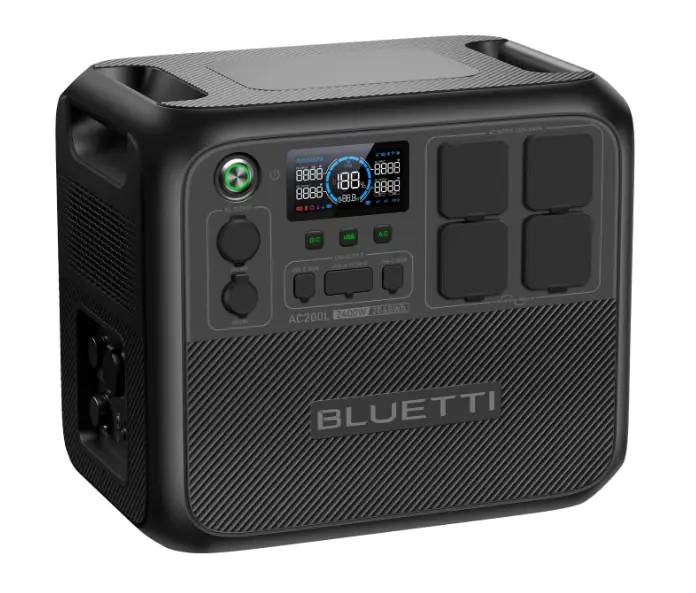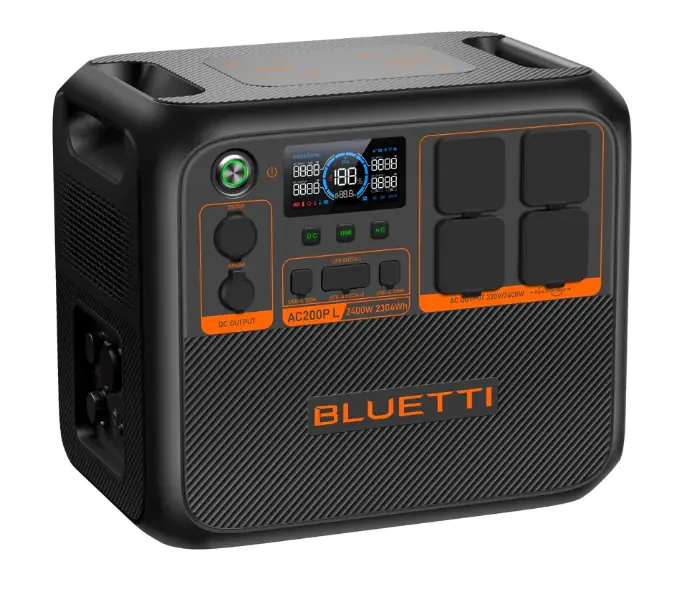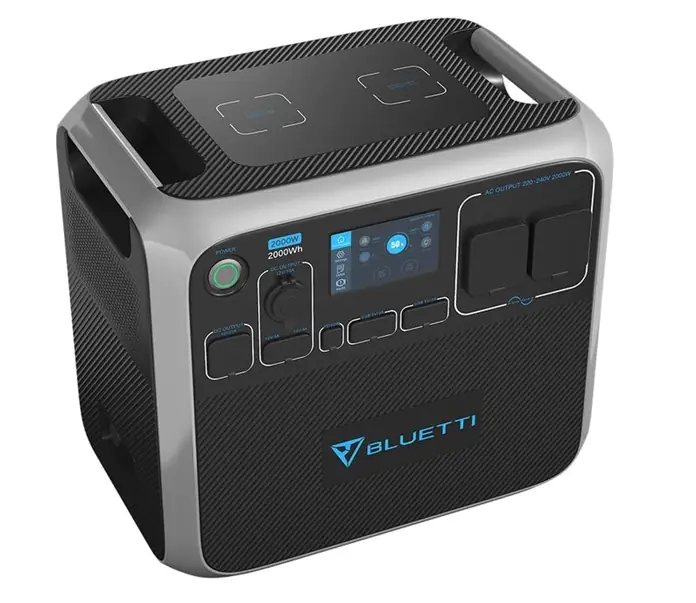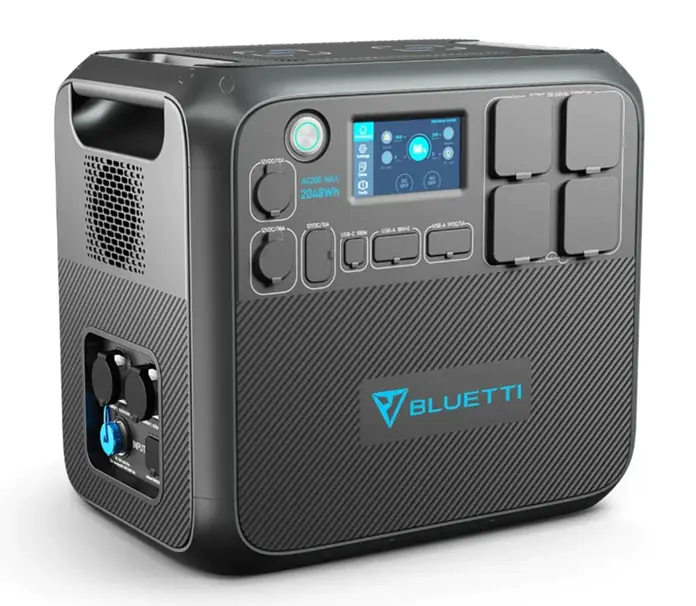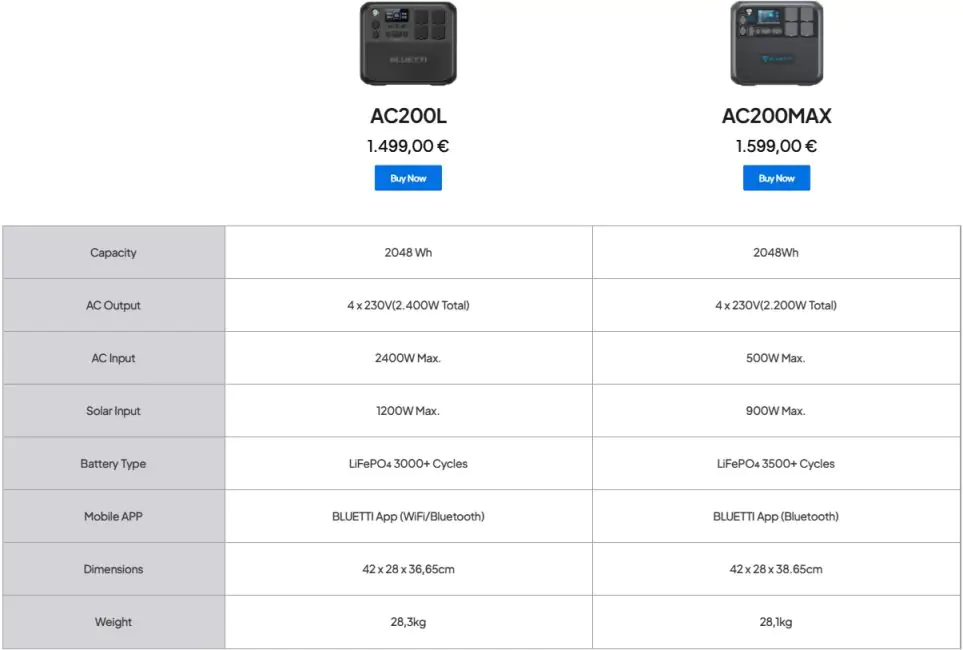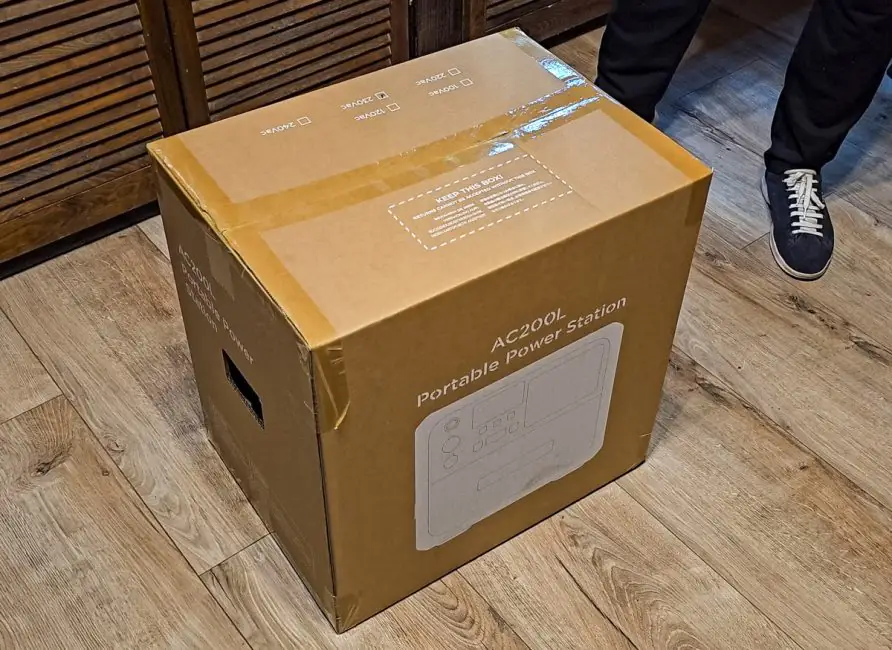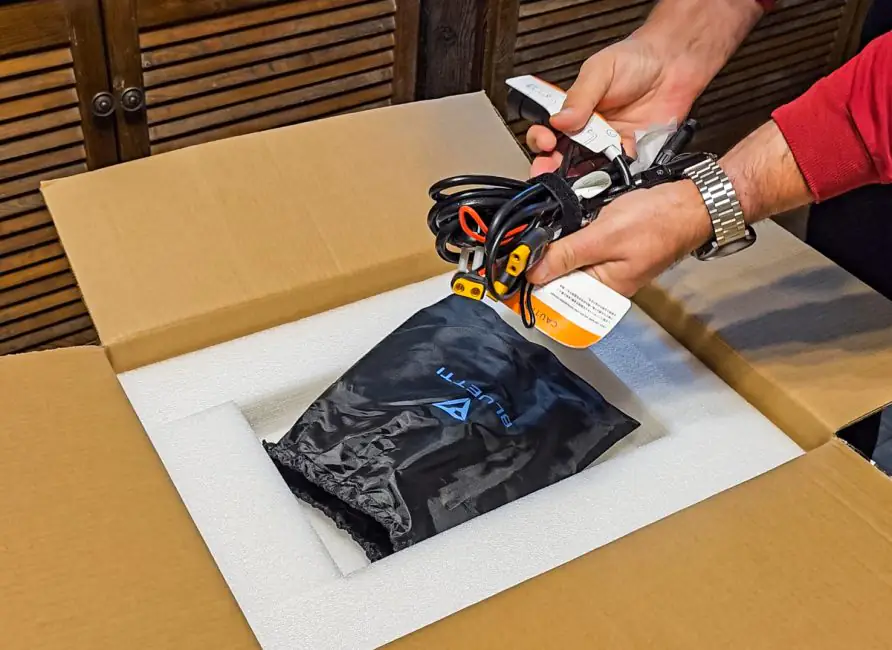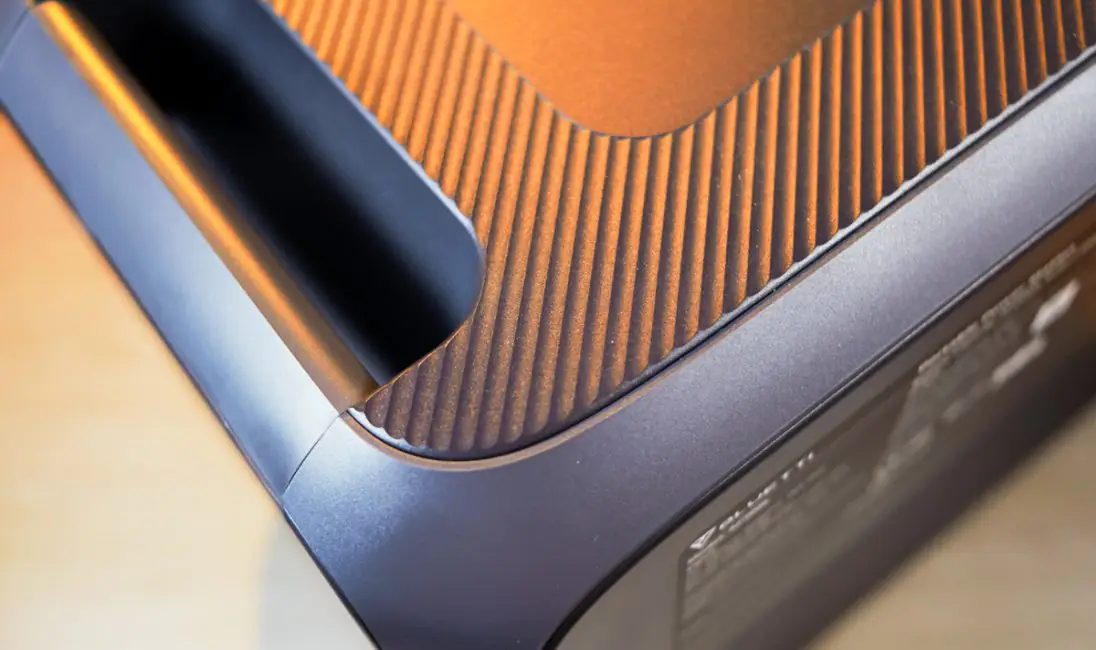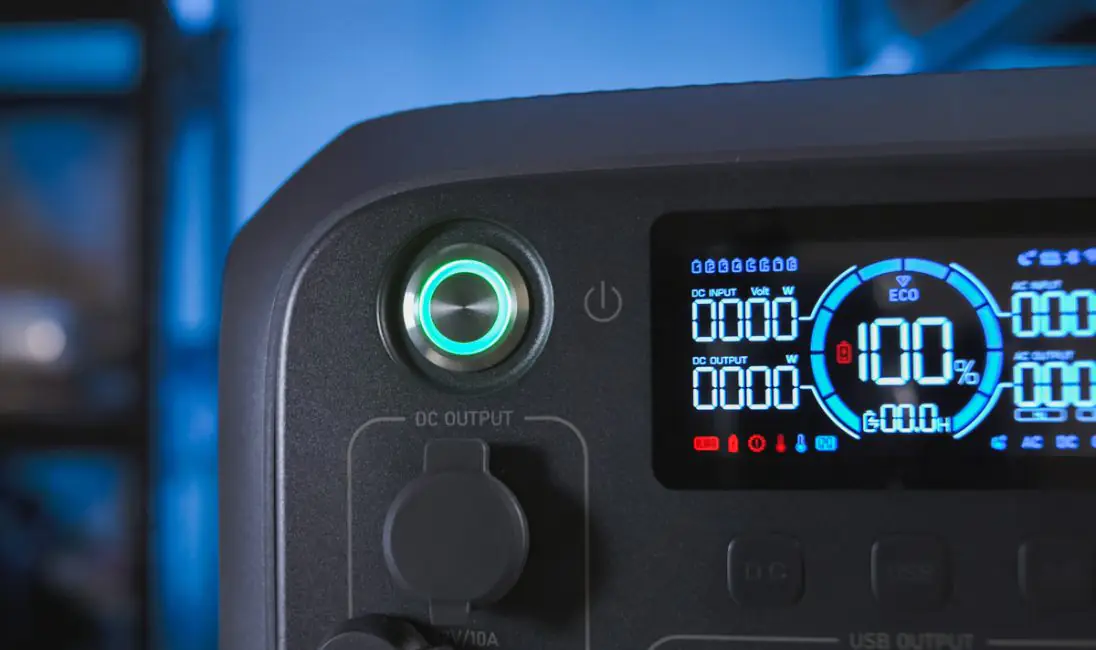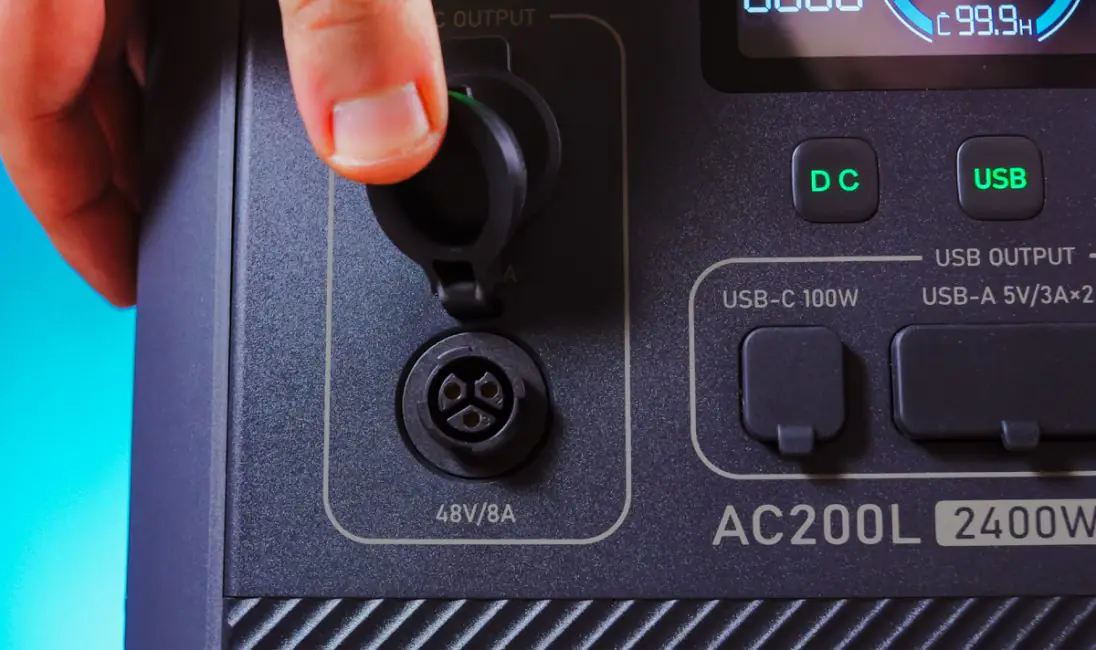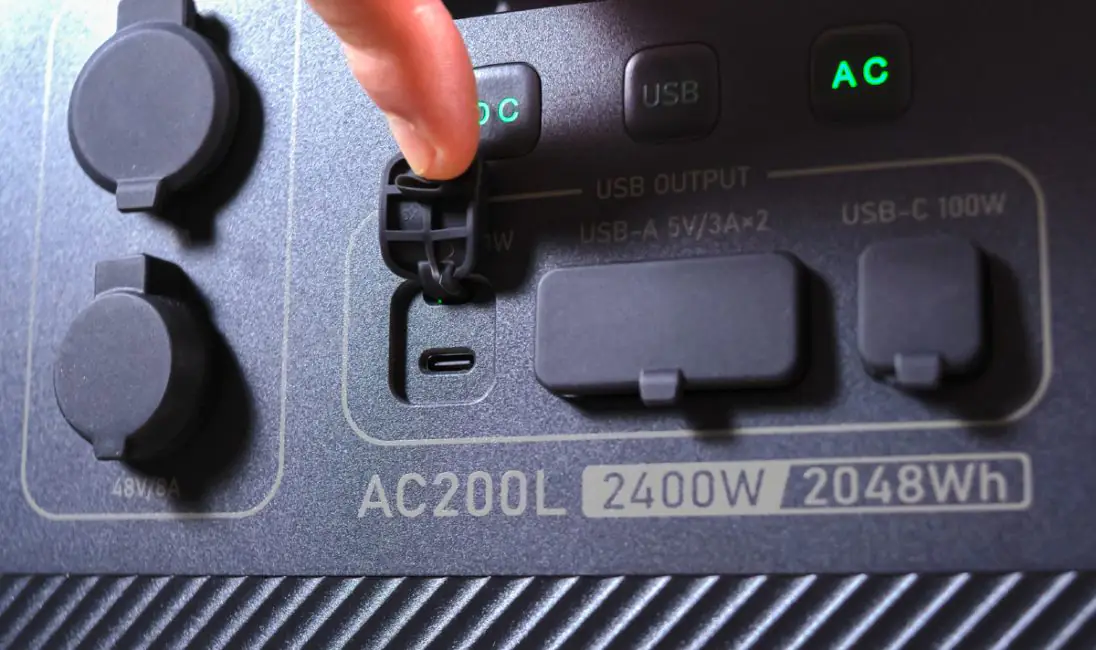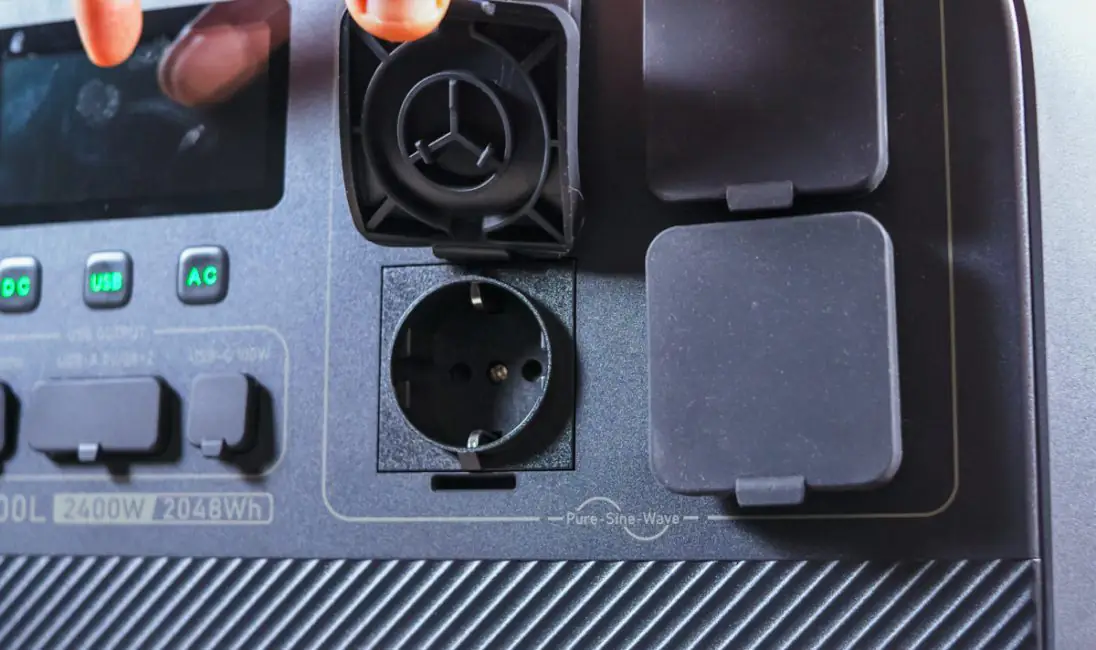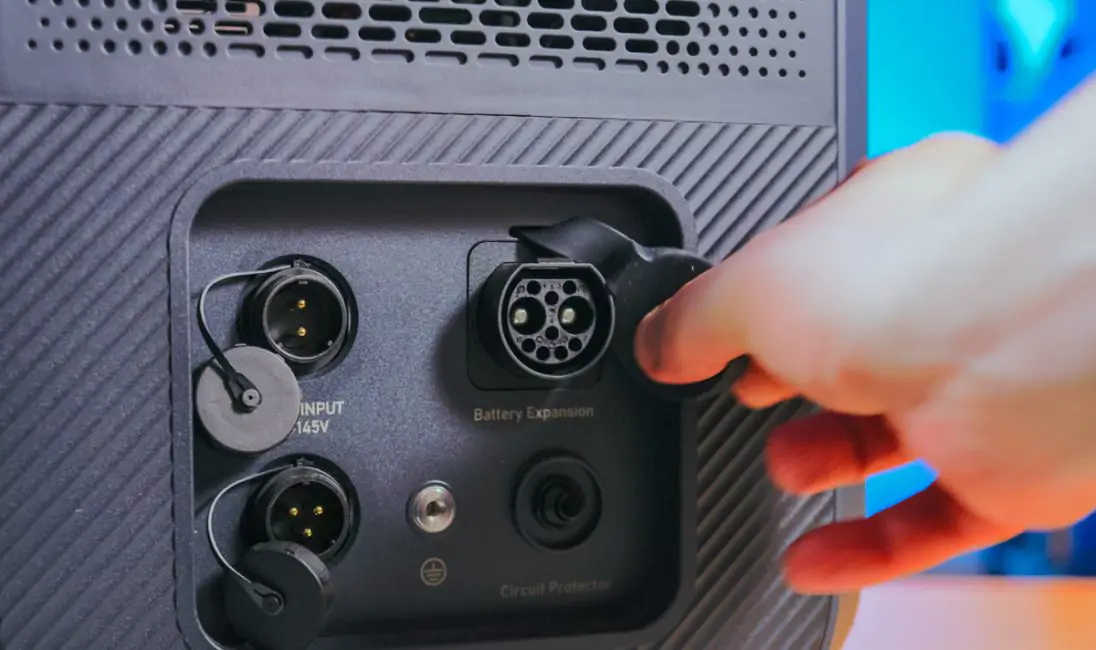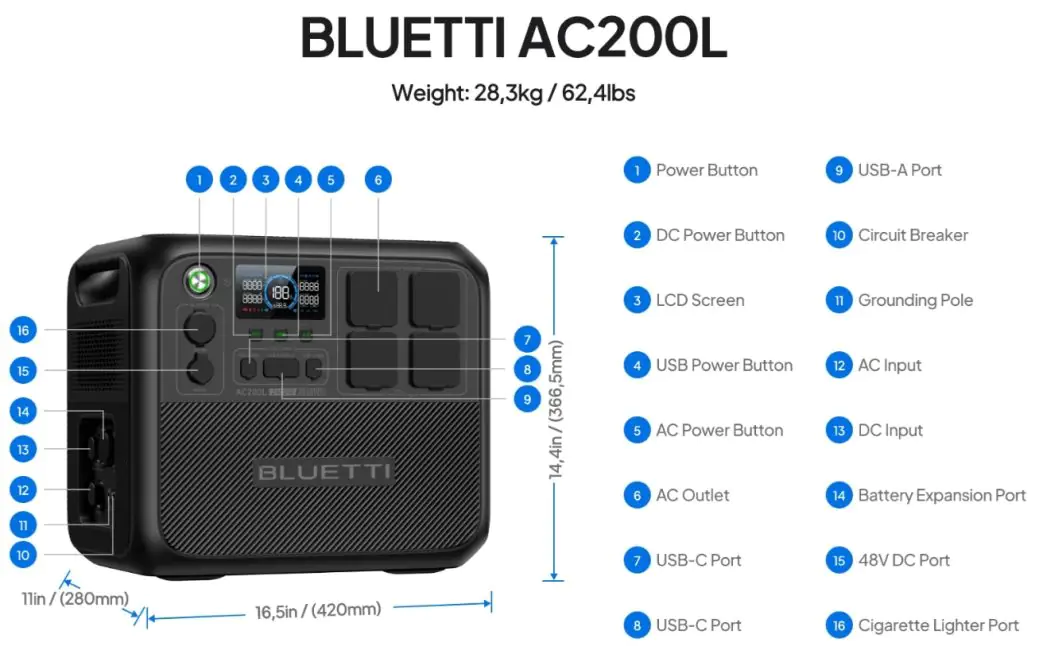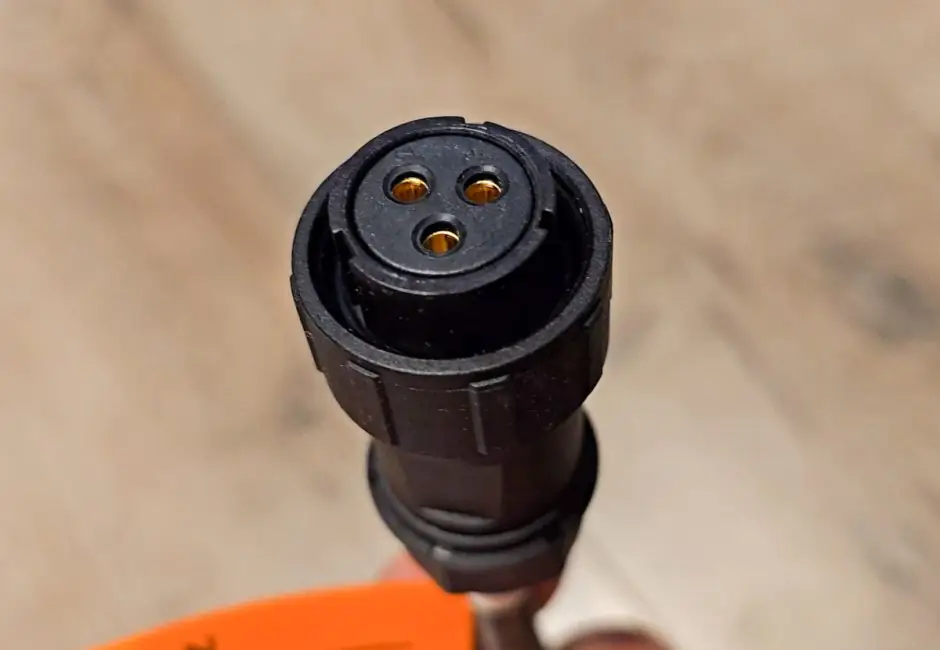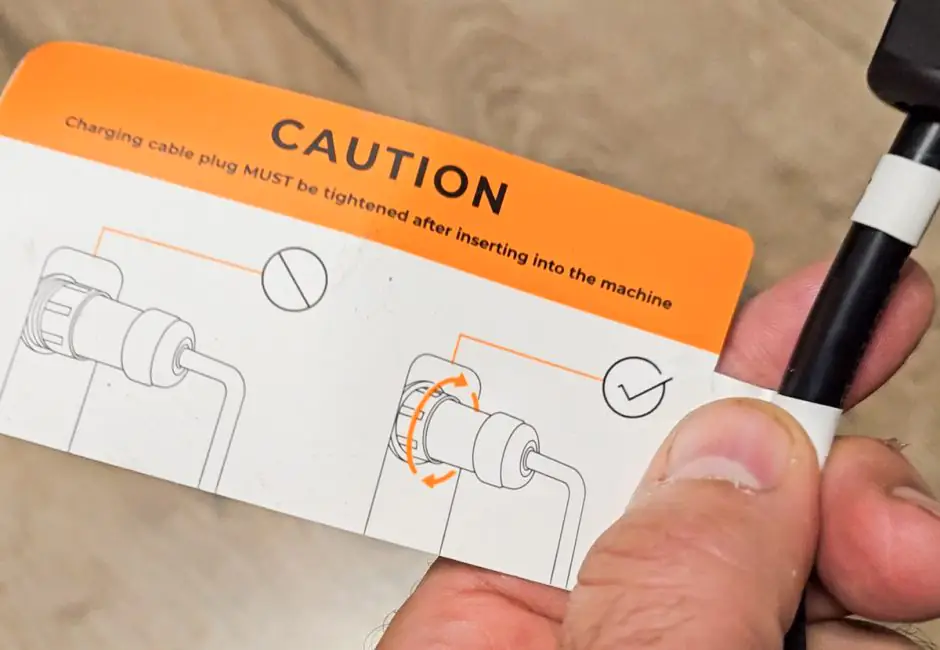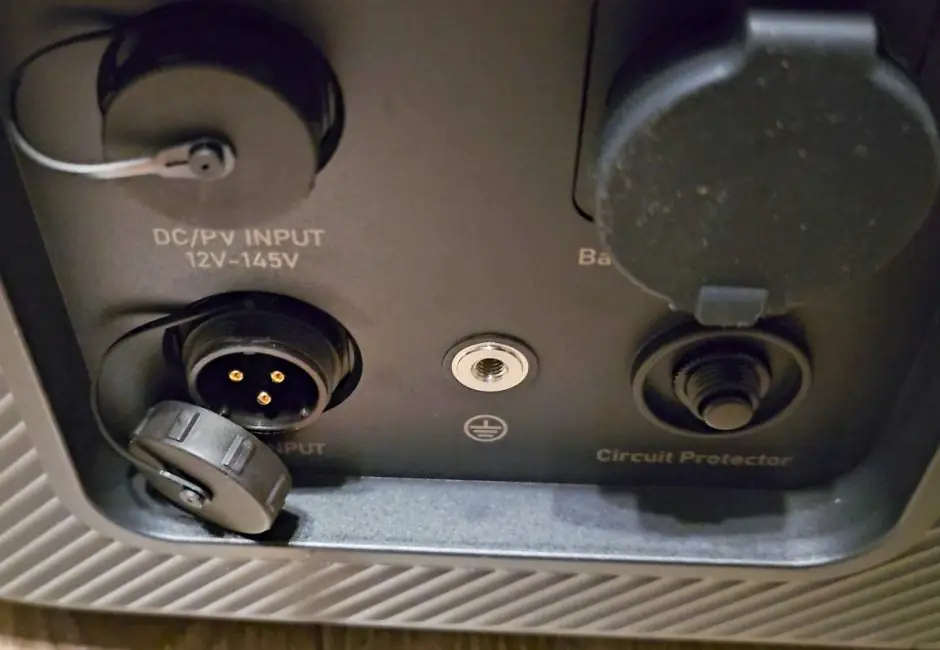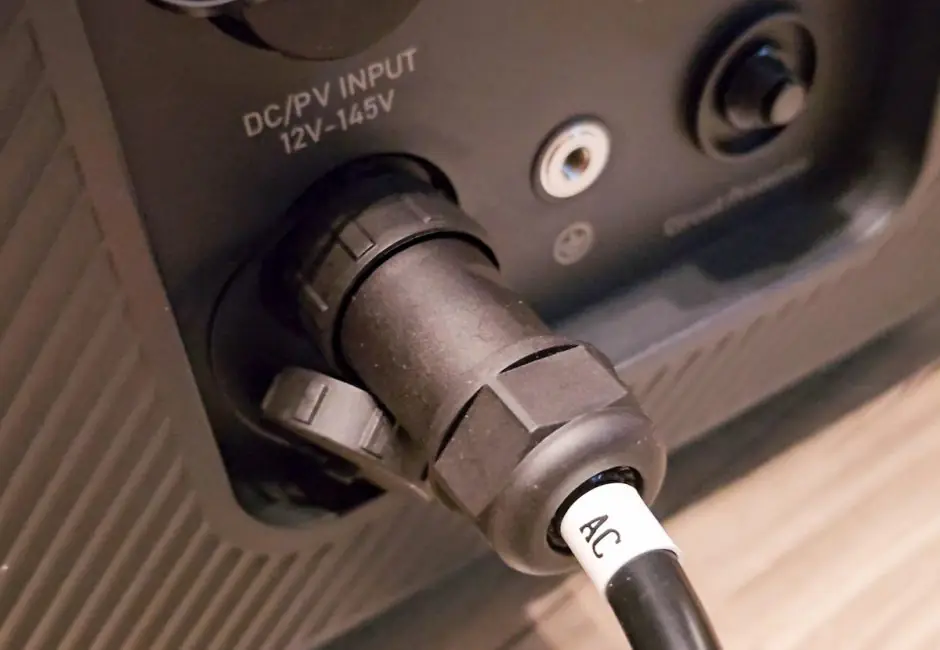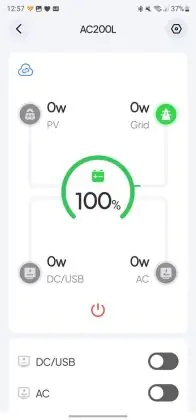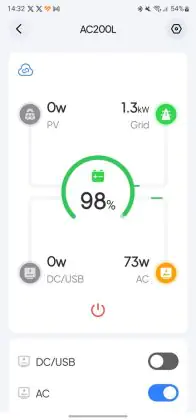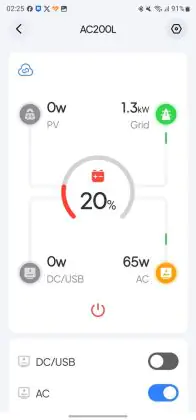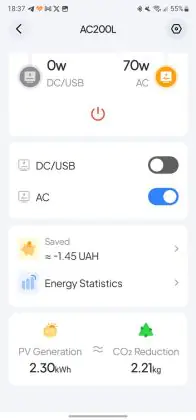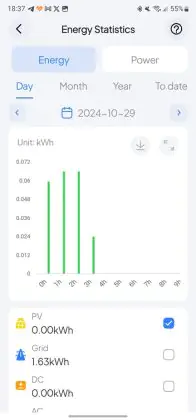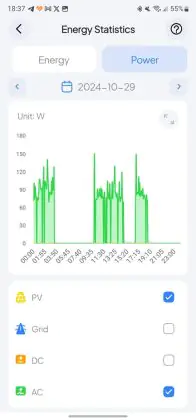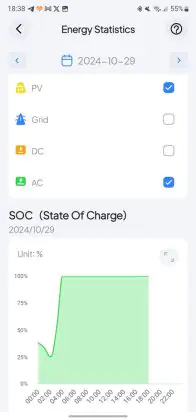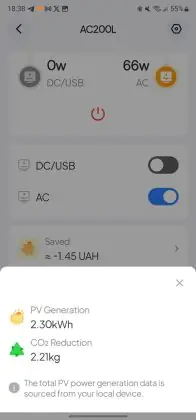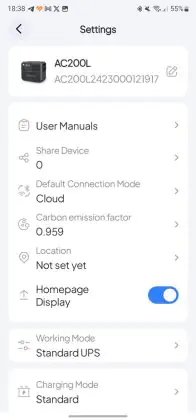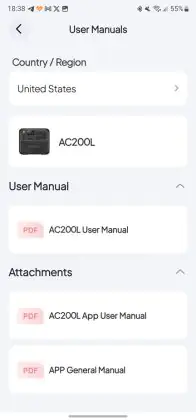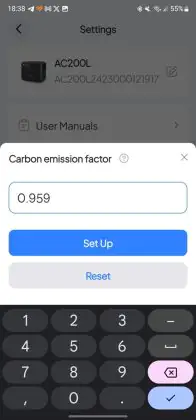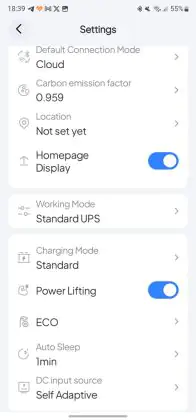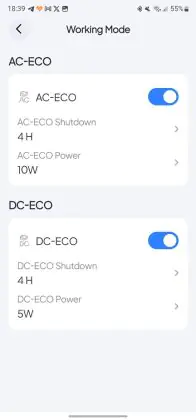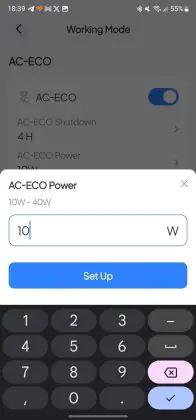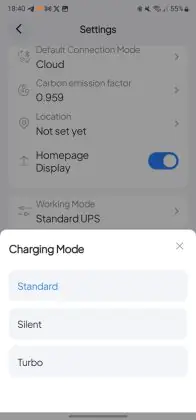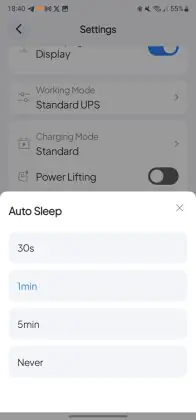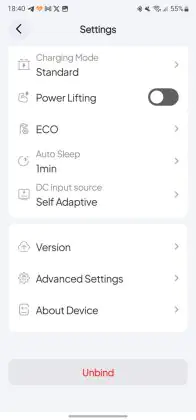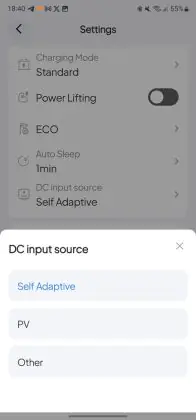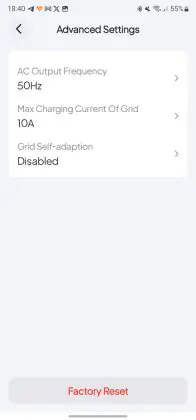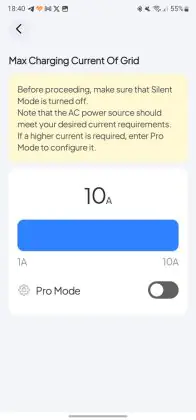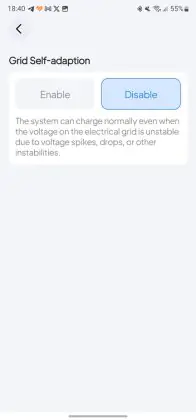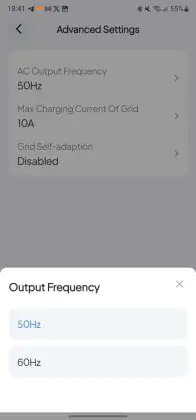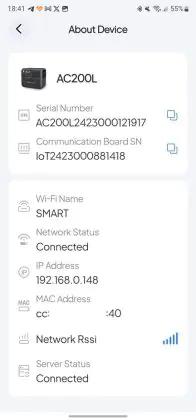© ROOT-NATION.com - Use of content is permitted with a backlink.
Portable Power Stations have become a topic of significant interest in Ukraine. Although large-scale power outages are not currently widespread, the likelihood of worsening conditions in the winter remains high. This concern stems from the destruction of a substantial portion of energy generation and distribution infrastructure due to Russian missile strikes, with ongoing threats to the power grid persisting. In most parts of the world, charging stations are primarily marketed as equipment for outdoor activities and only secondarily as backup power sources. However, in Ukraine, they have become essential household tools for ensuring power continuity during outages. It is worth noting that equipment manufacturers have adapted to the current situation in Ukraine, ramping up production volumes and diversifying their product lines. Additionally, new models have been improved to meet the specific needs of Ukrainian consumers. Today, we will be taking a closer look at the updated BLUETTI AC200L power station from one of the industry leaders.
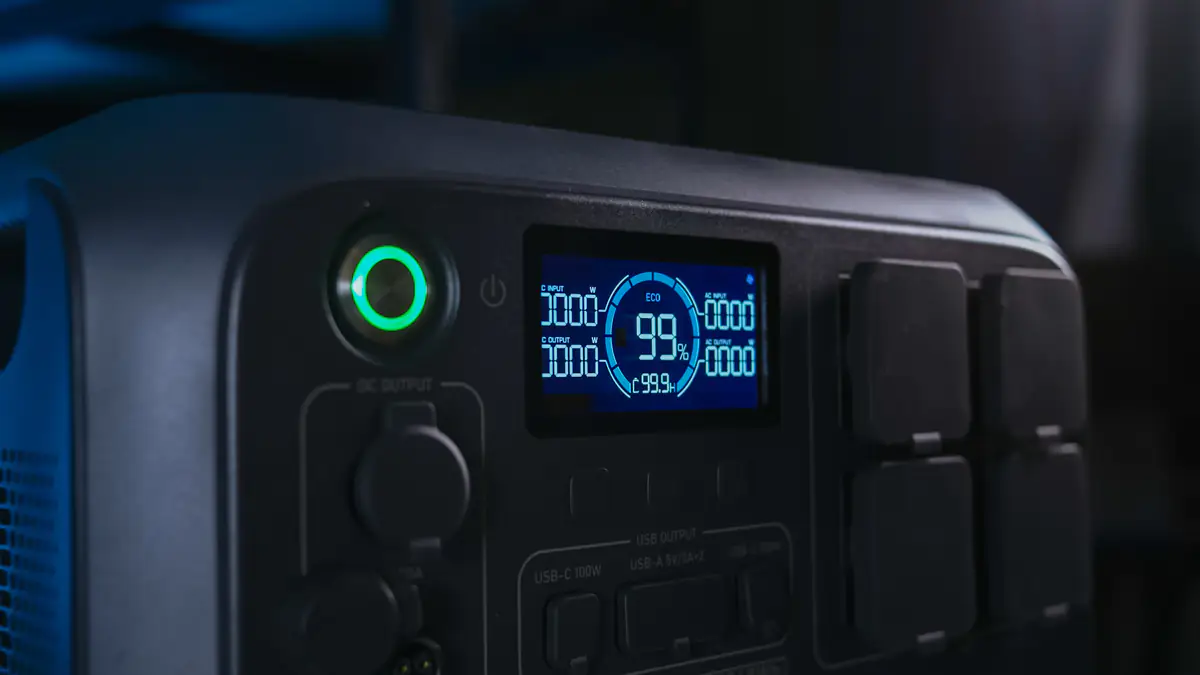
This power station is likely one of the most practical backup power solutions for an average city apartment, a country house, or a small home, thanks to two key features: an AC output power of 2400 W and a battery capacity of 2048 Wh. Power stations with these specifications have gained popularity due to their balanced combination of power output, battery life, and portability. Let’s take a closer look at this product.
Video: BLUETTI AC200L power station review
Don’t want to read the text? Watch the video!

Read also: How to Safely Use UPS, Batteries, and Power Banks
Main specifications of the BLUETTI AC200L power station
Before starting the testing process, let’s go over the main specifications of the power station to better understand its capabilities.
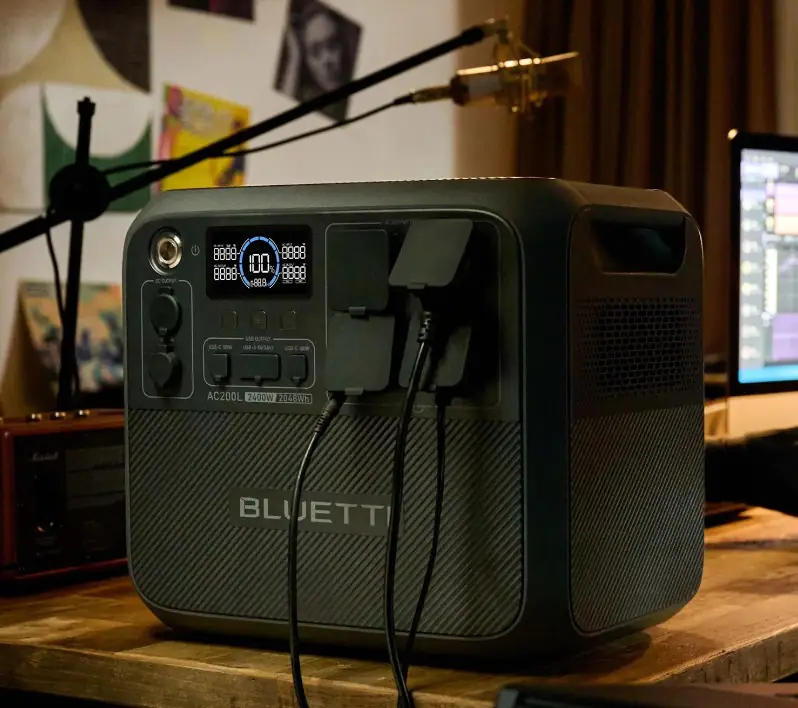
- Battery information:
- Battery capacity: 2048 Wh (51.2 V, 40 Ah)
- Battery type: LiFePO4 (Lithium Iron Phosphate)
- Service life: 3000+ charge cycles to 80% of original capacity
- Control system: MPPT Controller, BMS
- AC output:
- Inverter type: pure sine wave
- AC outlets: 4 x 230V/10.5A
- Rated power: 2400 W
- Increased power mode: 3600 W
- Maximum peak power: 7200 W
- DC system:
- USB-C ports: 2×100 W
- USB-A ports: 2×18W
- RV type DC port 1 x 48V/8A
- Car socket: 1 x 12V/10A
- Input current and charging:
- Alternating current: 2400 W max.
- Solar panels: 1200W max, VOC 12-145VDC, 15A
- Charging from the car: 12/24 V from the cigarette lighter socket
- Maximum input power: 2400 W from the mains and solar panels
- Charging time:
- 2400W AC current: 1.5 hours
- Solar panels 1200 W: 2 hours (clear weather, perfect panel orientation, low temperature)
- From a 12/24 V car cigarette lighter (100/200 W): ≈10-20 hours
- AC + solar panels (2400 W): ≈1.5 hours (clear weather, ideal panel orientation, low temperature)
- General data:
- Capacity expandable: up to 2×B210, 1×B230 or 2×B300
- UPS: yes, up to 20 ms
- Pass-through Charging: yes
- Weight: 28.3 kg
- Dimensions (WxHxD): 42.0×28.0×36.65 cm
- Operating temperature: from -20 to 40℃
- Storage temperature: from -10 to 45℃.
- BLUETTI AC200L page on the manufacturer’s website
Positioning and main differences between AC200L and other models in the series
The BLUETTI lineup of portable power stations includes several models in the AC200 series, which can make it challenging to differentiate between them. To address this, let’s conduct a brief comparison.
A defining feature of this series is the built-in battery capacity of approximately 2 kWh, with minor variations. The dimensions and weight of these power stations are also fairly similar across the board. The AC200L and AC200PL are the newer-generation models, while the AC200P and AC200MAX represent older models within the lineup.
Comparison of AC200L with AC200MAX, AC200P, AC200P L
BLUETTI positions the AC200L as an updated replacement for the AC200MAX. However, the AC200MAX is still available for purchase in stores.

The primary improvements in the AC200L are found in its electrical specifications. The new model offers noticeably higher power output—2400 W in standard mode, 3600 W in enhanced power mode, and up to 7200 W peak power during surges. In comparison, the AC200MAX has a nominal power output of 2200 W without an enhanced mode and a peak power of 4800 W.

The older base model of the lineup, the AC200P, is still available for purchase as well. This model has more modest electrical specifications, with a power output of 2000 W (4800 W peak) and a battery capacity of 2000 Wh. Additionally, it comes equipped with only two AC outlets.

The AC200PL is another new addition to the series, positioned as a premium model. It features orange accents in its design, setting it apart visually. This version is equipped with an upgraded battery capacity of up to 2300 Wh and includes two wireless charging pads on the top for added convenience.

Additionally, the new BLUETTI AC200L and AC200PL models feature significantly higher charging power—up to 2400 W from AC power and 1200 W from solar panels, compared to the 500 W from the power supply and 900 W from solar panels in the older models.
There are also some functional differences between the models. A notable drawback of the AC200L is the lack of a wireless charging pad on top, which is present in all the other models. Whether this is a critical issue depends on your personal needs.
Additionally, the displays on the AC200L and AC200PL models have been simplified. They are used only to show current station parameters and operating mode, whereas the older AC200P and AC200MAX stations feature their own menu interface with a touchscreen. The new models do not have a touchscreen, and all settings must be adjusted through a mobile app. This can be seen as both a disadvantage and an advantage, as smartphone control can be more convenient.
The new AC200L and AC200PL stations can be connected to a smartphone both locally via Bluetooth and remotely through the cloud via a Wi-Fi connection. In the latter case, you gain the option to control the station remotely over the internet. In contrast, the older base model AC200P does not support a mobile app at all, while the AC200MAX only supports local Bluetooth connection to a smartphone.
Perhaps the most significant difference in the new models is that they connect directly to the AC power grid via a power cable, whereas the older models use separate power units to convert AC to DC. As a result, the AC200L and AC200PL support passthrough charging and UPS (Uninterruptible Power Supply) functions. This means that when there is power in the stationary grid, the stations can simultaneously charge themselves and supply power to connected devices—directly from the grid. In the event of a power outage, the station’s inverter automatically switches on within 20 ms, and the power supply to connected devices continues uninterrupted, now relying on the built-in batteries.
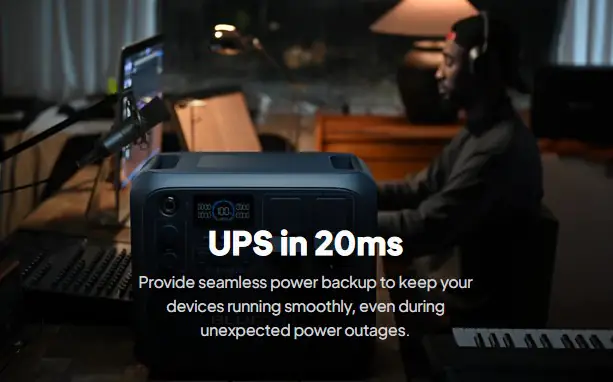
All power stations of the AC200 line have the ability to expand the capacity by connecting additional battery modules to a special connector. For more information on equipment compatibility, please visit the manufacturer’s website.
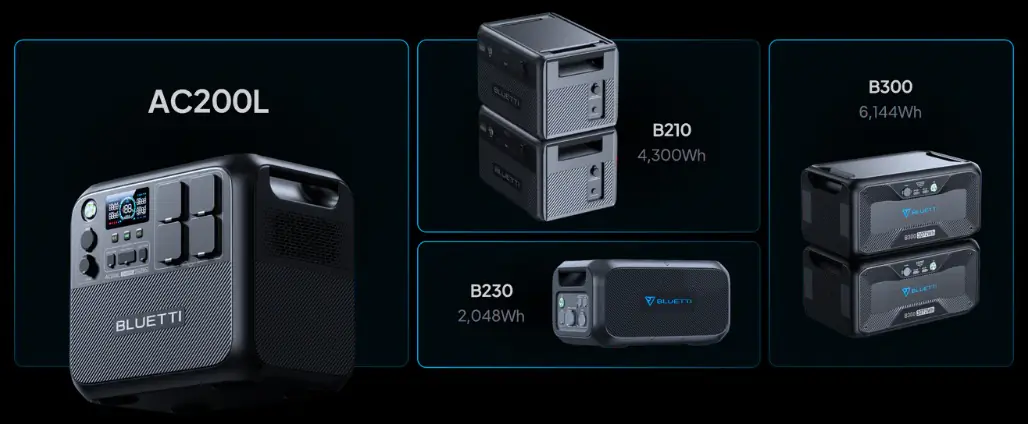
Read also: Review of the Sumry HGS 5500W Off Grid Solar Inverter and Sunjetpower 100AH 51V Battery
Prices and buying a power station in Europe
I bought BLUETTI AC200L in the official European online store. The price of the station in this case will be 1499 EUR.
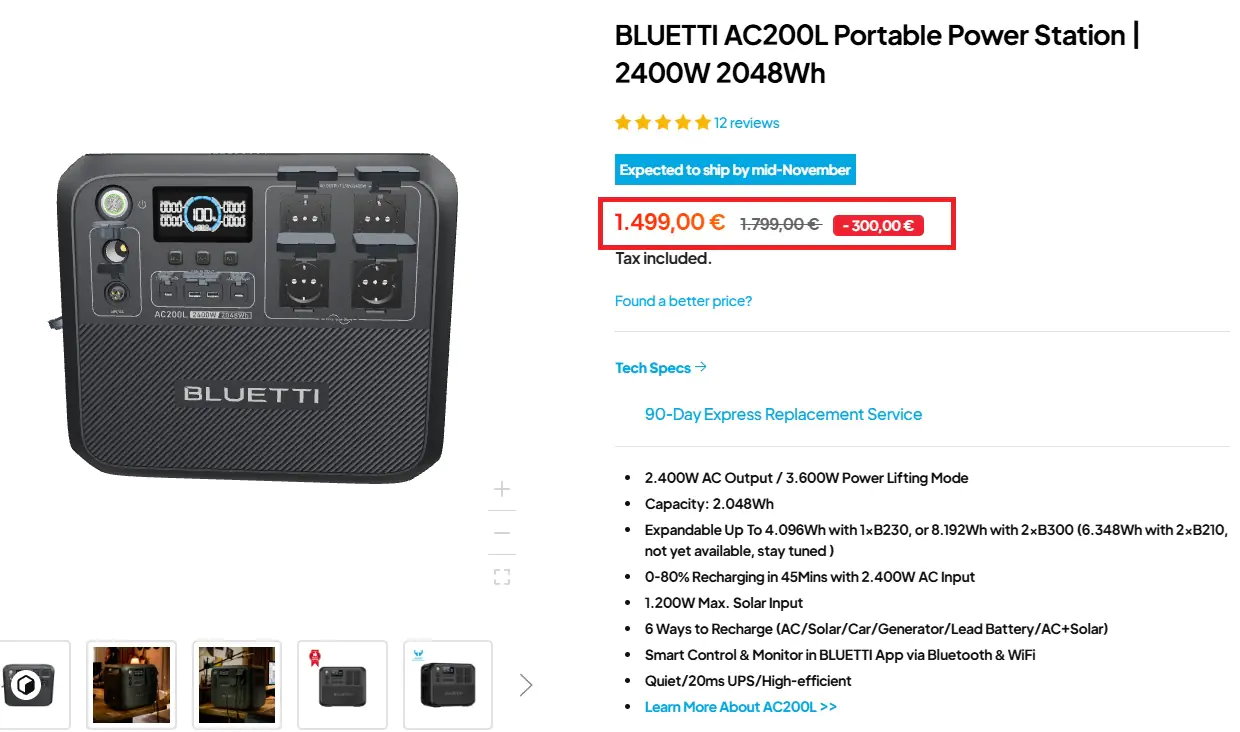
Of course, you can also choose to purchase the product from local retailers.
Unpacking and package contents
The power station comes in double packaging. On top, there is a transport box made of very thick cardboard, reinforced with hard fiberboard at the edges and equipped with cut-out handles with plastic overlays for easy carrying. It’s a great touch! However, there is a slight issue: getting the station out of the first box is nearly impossible, so I had to cut it open.
Next, there is the main box with labeling, where the power station inside is protected by specially molded foam polymer holders. In general, there are no complaints regarding the packaging; it’s been done to the highest standard to ensure that the product remains undamaged during transport and delivery to the customer.
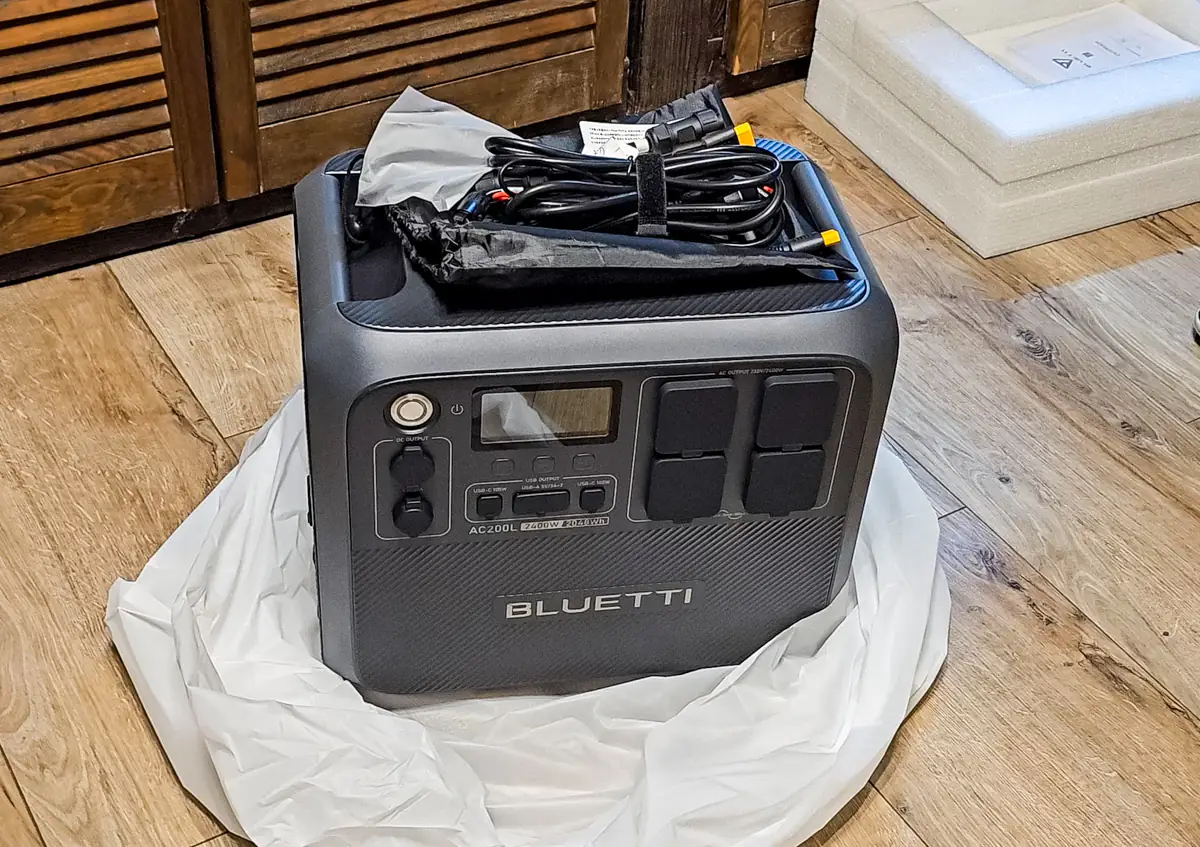
In addition to the power station, the box contains the following items: paper documentation, including the user manual and warranty certificate, as well as a set of cables: the main power cable for connecting to the AC mains (with a proprietary connector), a cable for charging from a car’s cigarette lighter, a cable for solar panels, and a universal DC cable. The cables are neatly bundled with a branded strap with Velcro. Additionally, there is a screw for connecting the grounding wire and a water-resistant fabric pouch for storing all the accessories.
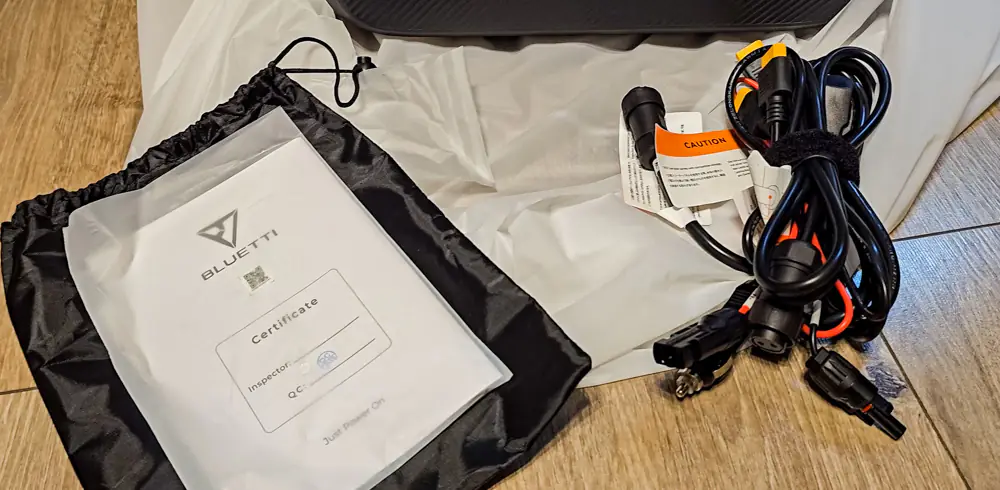
Read also: BLUETTI AC70 Portable Power Station Review: Compact Yet Powerful
Design, materials, build, placement of elements
The BLUETTI AC200L power station features a typical design for such devices, with a rectangular parallelepiped shape and rounded corners and edges. The body is made of high-quality, durable matte plastic in a dark gray color. The build quality is excellent, and the device feels sturdy and resistant to external wear.
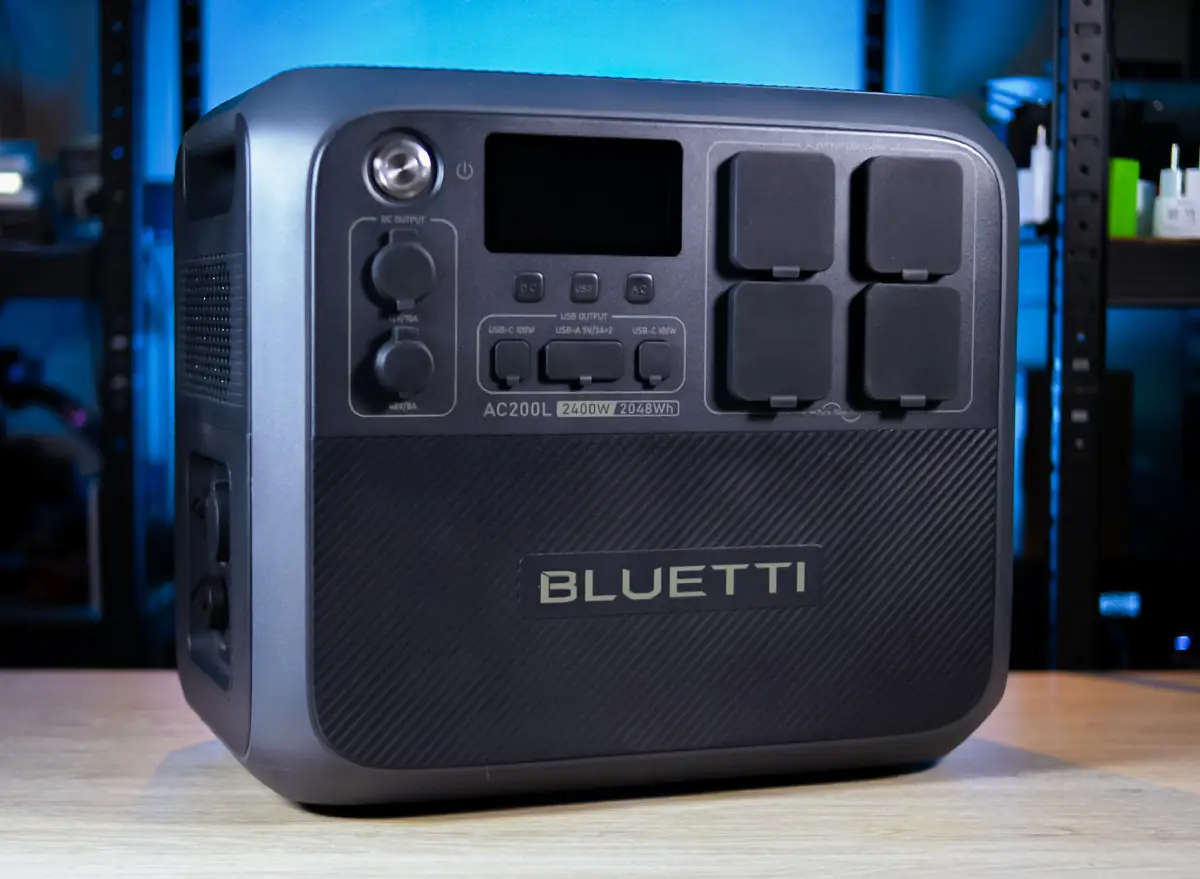
As for the placement of components, the top features two handles for easy carrying. On the back, there is a large sticker with all the relevant information. On the front, you’ll find the power button, two DC outputs (48V and 12V), a fairly large LCD screen, and three control buttons below it. Additionally, there are USB-A and USB-C ports, along with four AC outlets. All the ports are protected by rubber caps.
On the bottom left side, there is a block with connectors for charging via AC and DC, a port for connecting an additional battery, a grounding wire connector, and a fuse.
Tests and experience of using BLUETTI AC200L
Let’s move on to checking the real possibilities offered by the updated power station to consumers.
UPS function and Pass-through Charging
The main feature I was most interested in was the UPS (Uninterruptible Power Supply) function of the power station. Therefore, I was eager to test how it performs in real-life scenarios. The UPS function is directly linked to the pass-through charging feature, which allows the station to charge while simultaneously powering connected devices. Essentially, if the station is plugged directly into a wall outlet, it likely supports pass-through charging. Here’s how this works with the BLUETTI AC200L:
If the station comes with a separate charging block, the UPS function is not available, as such a station can only be charged via direct current (DC).
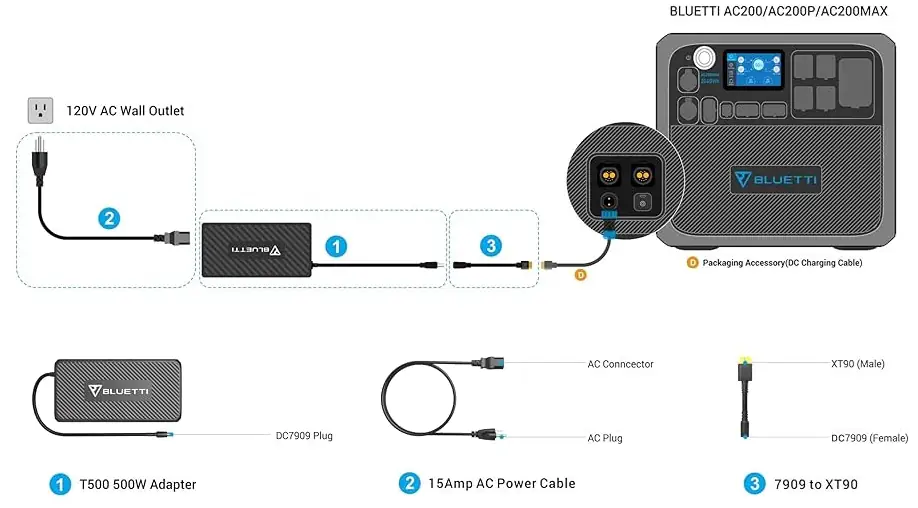

I currently use a 1092 Wh power station with charging via an adapter. It seems to be enough to power my equipment during a typical workday of 6-8 hours when there’s a power outage (a powerful laptop with a large 43″ monitor and all peripherals, with a total consumption of about 70-90W). It also allows for a few hours of watching movies or TV shows on a 55-inch TV (110-120W). However, from experience, I can confidently say that a station with a separate adapter is very inconvenient. During a power outage, I have to manually switch everything from the wall outlet to the power station, and then do the reverse when the power comes back.
Read also: ALLPOWERS S1500 Portable Power Station (AP-SS-008): Review and user experience
Additionally, you need to constantly monitor the charging of the station through the built-in screen or mobile app and manually plug it into the socket, then unplug it when the battery is fully charged to preserve its lifespan. To make this process easier, I’ve used a smart Wi-Fi socket that I can control via my smartphone, so I don’t have to keep crawling under the desk to plug and unplug the power station. However, it’s important to note that you need to have such a socket or purchase one separately.
We also have another station at home, the older BLUETTI AC200P model I mentioned earlier. It uses a charging adapter, so naturally, it lacks the UPS (Uninterruptible Power Supply) function, and all the same inconveniences I described earlier apply here as well.
Why such a long introduction? To help you understand the frustrations of using a power station without Pass-through Charging and to encourage you to avoid this situation if possible. At the same time, current models with the UPS function should address these issues and make the experience much more convenient.
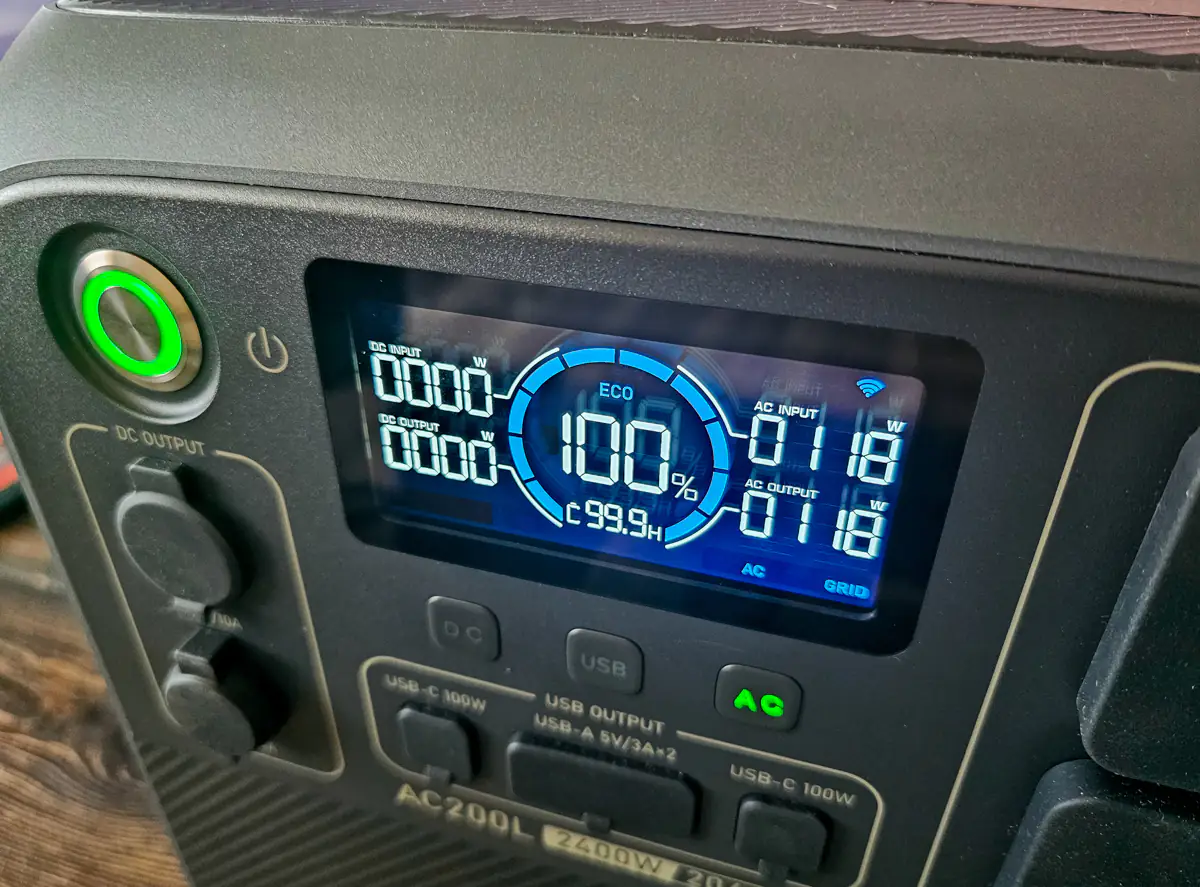
In practice, my expectations were completely met! Now I can simply keep the BLUETTI AC200L continuously connected to the main power grid, and power all my work equipment and the TV from the power station outlets. The UPS function works by default without any extra configuration, although some options are available through the app. Additionally, once power is restored, the station charges simultaneously while continuing to supply power to all connected devices. Once charging is complete, the controller stops charging the station and just keeps supplying power to the devices. It’s straightforward and transparent!
I demonstrate how UPS and pass-through charging work in this video:

Backup power supply for housing
The BLUETTI AC200L is not marketed by the manufacturer as a source for backup power for an entire apartment or house. However, thanks to pass-through charging and the UPS functionality, if the station has enough power capacity for all your devices, theoretically, you could connect it at the electrical input after the meter—before the main circuit breaker—and provide backup power for all the electrical consumers in your home. Alternatively, if you have separate circuits, you could connect the station before one of the group circuit breakers. There is some flexibility here, depending on your needs and knowledge. However, I recommend consulting an electrician for such installations.
Read also: EcoFlow River 2 Power Station Review
BLUETTI AC200L battery life tests
The most important point that worries me is the possibility of long-term power supply to my workplace.
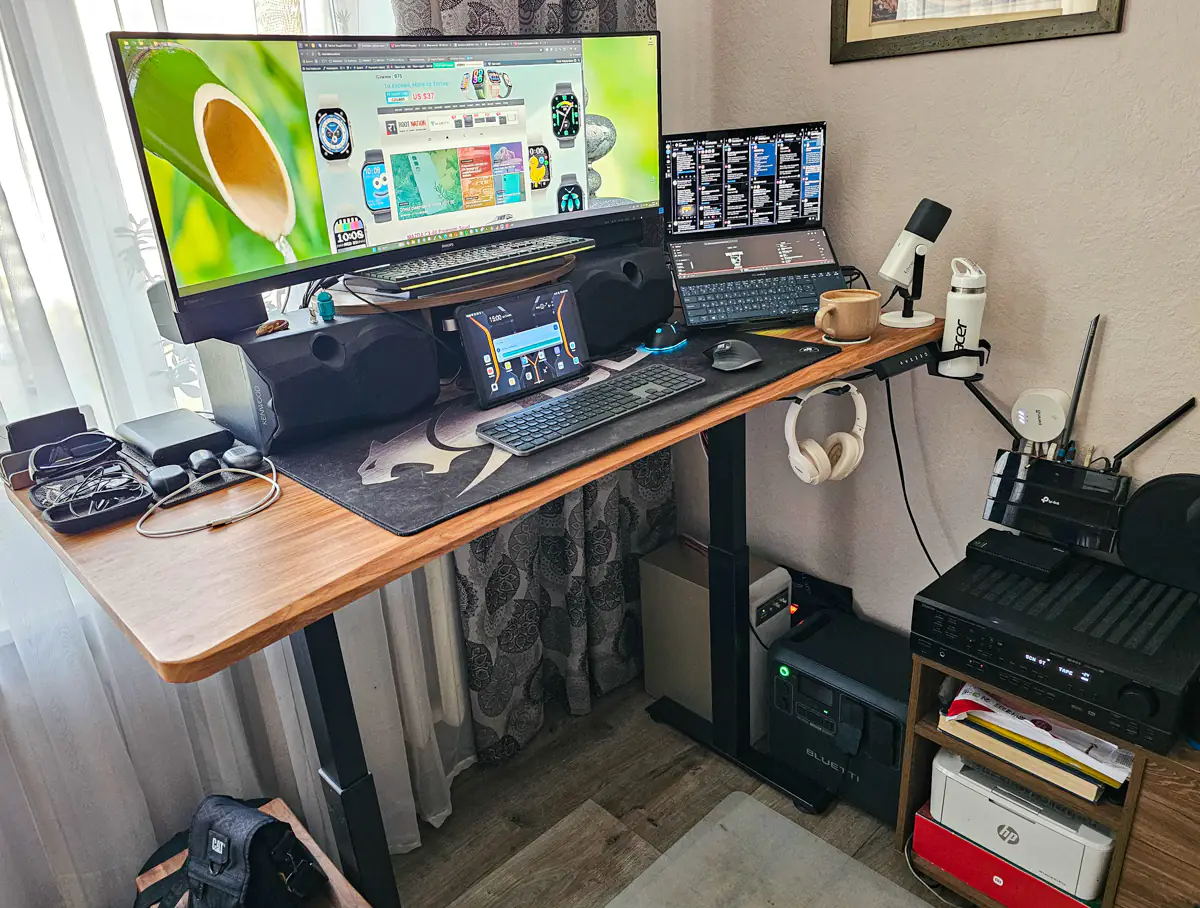
This is my everyday work set:
- Laptop ASUS Zenbook Pro Duo UX581
- Monitor 43″ Philips Brilliance 439P9H/00
- Peripherals connected to the monitor:
- WD Black 4TB external desktop HDD in ARGUS enclosure with separate power supply
- External 1 TB Lenovo HDD with USB power supply
- Cougar Aurora S keyboard with backlight
- Bloody W95 Max mouse with backlight
- TP-Link Archer C7 router
- 1stPlayer Moto-GT 1675 motorized table
All the devices mentioned above are connected to a single Eaton power strip with surge protection, which I simply plug into one of the outlets on the power station.
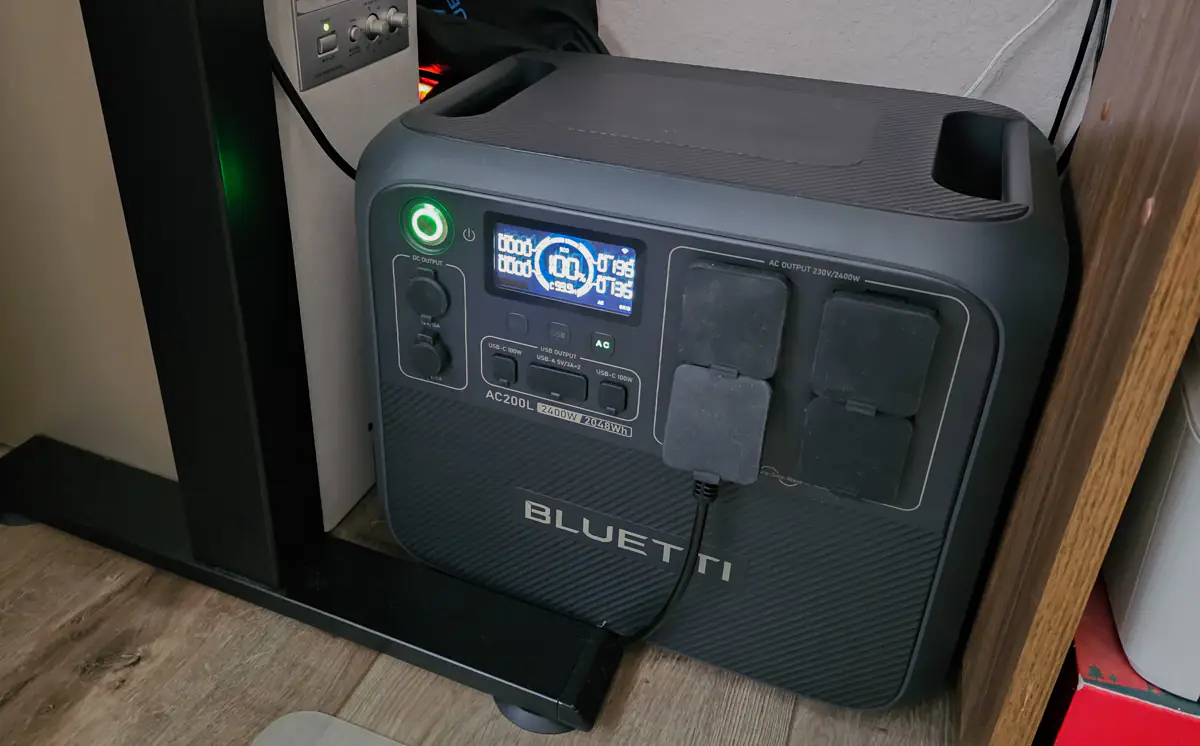
This is not a very economical option and, in general, it’s inefficient in terms of energy conservation, as a lot of energy is lost in the power strip, power adapters, and the conversion of DC from the batteries to AC via the inverter, and then back to DC through the device’s power adapters. For example, I could switch to a backup laptop, which is less powerful and can simply be charged via USB-C, and I could power the router directly from the station using the 12V DC line, as well as the external HDD. Certainly, I would do this in case of a long-term power outage. However, fortunately, such an apocalypse has not yet occurred in Ukraine. So, my goal in this test was to create maximum load on the power station during working activities to determine how long it would last in this mode.
The result obtained:
- Start of the test at 11:30 a.m. – 100% charge of the station
- Total power consumption when the equipment is switched on: up to 180 W, in operation: 80-120 W.
- End of the test at 19:00 – 54% station charge – total time 7 hours and 30 minutes
With the BLUETTI AC200L, I can keep all the necessary equipment for work powered for several days. This means I wouldn’t have to give up using a large monitor and a keyboard with a mouse. If I switch completely to my backup laptop, the realme Book, and forgo the external peripherals, the station’s full battery charge would last me 5 to 8 days of laptop usage.
Next, I tested the BLUETTI AC200L with a large two-compartment refrigerator. The station performed well in this test. The refrigerator’s power consumption during the compressor’s operation was around 170-180 W, and a fully charged station could keep it running for about 12 hours in continuous operation. However, since the refrigerator operates intermittently—cooling for about 2 minutes every 10-15 minutes—it essentially runs for 12-15 minutes per hour. This means the BLUETTI AC200L could keep the refrigerator working in a normal cycle for around 2 days.
In this video, we test the Bluetti AC200L in the kitchen: refrigerator, microwave, coffee maker, toaster:

Next came perhaps the toughest test for any power station—the Indesit IWSC5105 washing machine. My previous two stations, with power capacities of 1500W and 2400W, failed this test. However, with the AC200L, I immediately activated the high-power mode of 3600W through the app, and the washing machine started!
The washing cycle begins, and as the machine fills with water, its power consumption is around 80-90W. But when the drum starts spinning, the power demand jumps to 1850W. In this peak power mode, the station can supply the washing machine for about an hour. However, since the washing cycle includes different stages with varying power requirements, we can estimate that a full charge would be sufficient for 2-3 short cycles (15-20 minutes each) or 1-2 longer washing cycles. Of course, it’s best to wait until the mains power is restored for tasks like washing, as the process is quite energy-intensive. But in an emergency, the BLUETTI AC200L should be able to run a typical washing machine.
Start the washing machine:

Electric boiler:

The official website of the manufacturer provides some information about how long household appliances would run when powered by the BLUETTI AC200L. After conducting a few tests myself, I see no reason not to trust this data, although, of course, these figures are approximate:
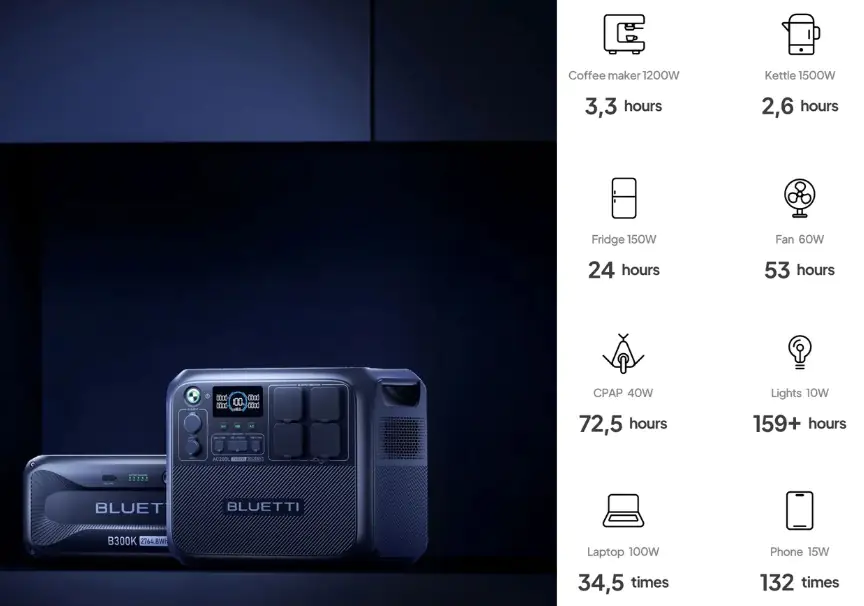
In any case, to estimate the approximate runtime of any electrical appliance from the power station, you need to know the total power consumption of the equipment. Then, simply divide the capacity (in this case, 2048 Wh) by the power in watts to get the autonomy in hours. I also recommend accounting for unforeseen energy losses and reducing the result by 10-20% — this will give you a more realistic estimate.
Read also: EcoFlow River 2 Max power station review: Affordable, fast, cool
Mobile application
As we have already seen, the power station has only a power button and three buttons to control the DC output, AC output, and USB ports. All other settings for the AC200L are managed through a mobile app, which is available for the major platforms. Instructions for using the application can be downloaded from the official website.
Android:
iOS:
When connecting the power station to a smartphone, you have two options: local connection via Bluetooth or connection through Wi-Fi and the cloud service. The second option allows remote control of the power station via the internet from anywhere and at any time.
You can familiarize yourself with the main features of the app using the screenshot gallery below:
In addition to duplicating the buttons on the station’s body, the mobile app provides numerous additional settings. These include activating the high-power mode, selecting the UPS mode and charging priority, managing the charging speed, and configuring the electrical grid parameters. Furthermore, there is an option to enable a mode where the station automatically adapts to the state of the power grid if its parameters are unstable. This effectively adds an extra layer of protection for devices connected to the AC200L. The app also includes an instruction manual for the device, as well as detailed energy consumption statistics and cost-saving information when using the power station with solar panels.
Screenshot of the app:

Real also: BLUETTI AC200L vs OUKITEL P2001 Plus: comparison of portable power stations
Charging
The fast charging function is one of the most important features of the new BLUETTI power stations. During situations like the winter of 2022 in many regions of Ukraine, where mains electricity was available for only a few hours a day, it became crucial to charge the battery as quickly as possible during that time.
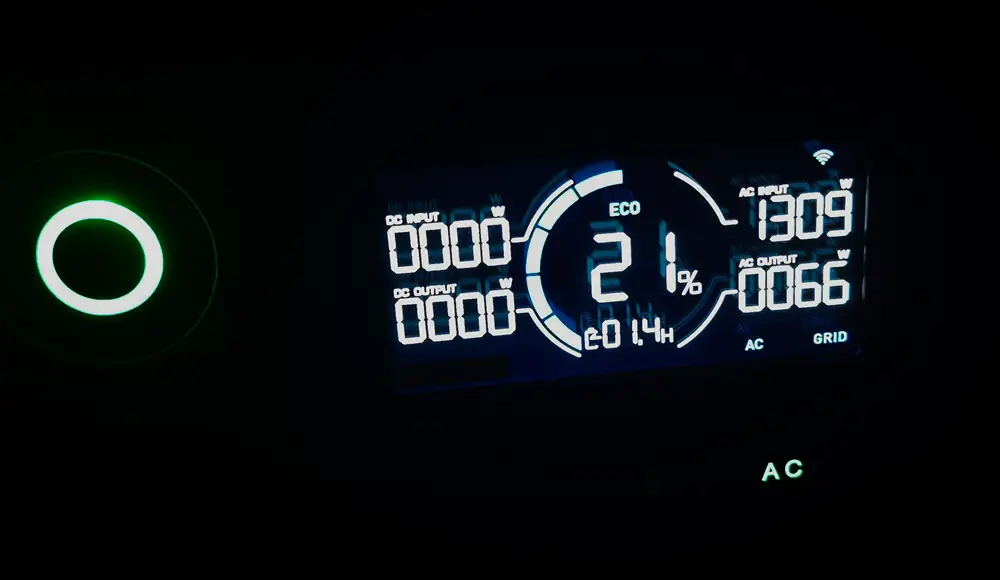
The maximum charging power of 2400W is achieved through direct connection to the AC grid. The solar panel charging power has also been significantly increased to 1200W. Unfortunately, I wasn’t able to conduct a proper solar charging test due to unfavorable weather conditions, but the charging speed from the AC grid is truly impressive. The charging controller smartly adjusts the power based on the current battery charge level, and the overall full charge time aligns with the manufacturer’s claim—about 1.5 hours. I can confirm this performance.
Read also: What You Need to Know Before Installing Solar Panels
Conclusions
Without a doubt, the BLUETTI AC200L is a top-quality product from a market leader, carefully designed and free from any obvious flaws. This is not surprising, given that the manufacturer has unparalleled experience in creating a variety of devices to ensure energy independence both indoors and outdoors. I honestly don’t know what could be further improved here—it’s essentially the perfect station, both in terms of hardware functionality and software features.
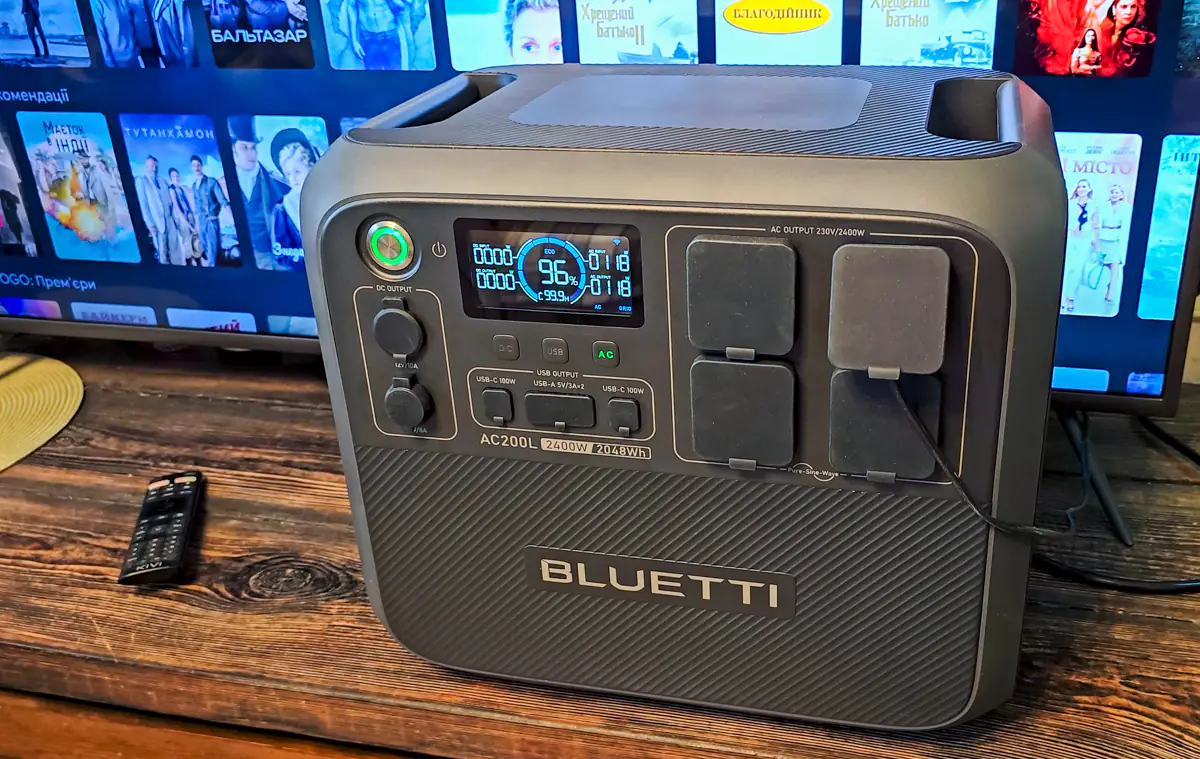
Accordingly, the price of the AC200L is noticeably higher compared to competing products with similar specifications from lesser-known Chinese brands. However, if you don’t have an extreme desire to save and want to get the highest-quality power station, I can wholeheartedly recommend considering BLUETTI’s time-tested and consumer-approved products.
I liked it:
- UPS function and the ability to create a full-fledged backup power supply system for the entire home, as well as for individual devices or groups of electrical consumers
- AC through charging and parallel power supply to consumers
- Fast AC and DC charging up to 2400 W
- Output power boost mode up to 3600 W and peak power of 7200 W
- Functional mobile application
- Possibility of remote control
- Possibility to expand the capacity with additional battery modules
- Silent operation of the station in any mode
Conditional disadvantages:
- Proprietary AC power cable – if it is lost or damaged, you will have to order a new one
- Inability to control power station parameters without using a smartphone
Where to buy



